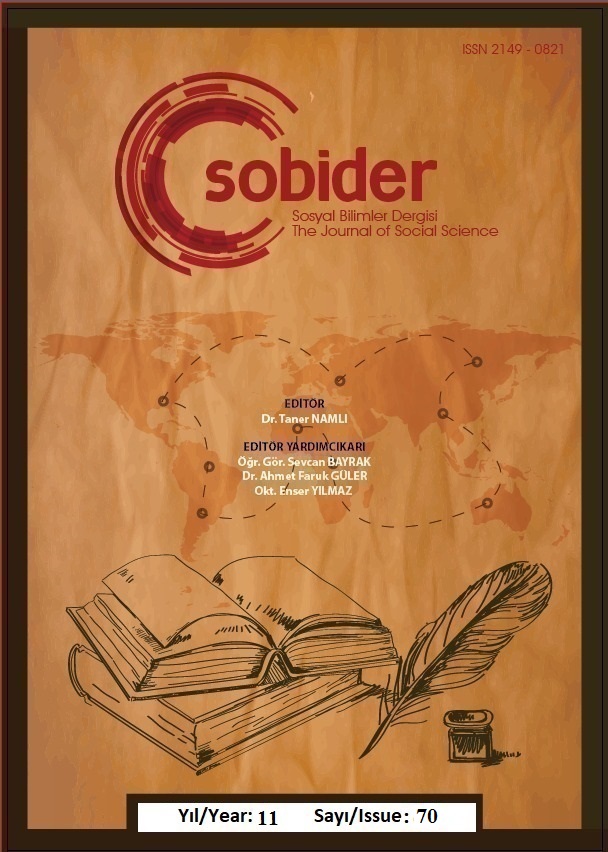Author :
Abstract
Bu çalışma, İstanbul'daki okullarda görev yapan yöneticilerin bilgi ifşa etme davranışlarının çalışan memnuniyeti üzerindeki etkilerini incelemeyi amaçlamaktadır. Araştırma, ilişkisel tarama modeli gibi tanımlayıcı araştırma yöntemlerinden yararlanarak yürütülmüştür ve örneklem, rastgele olmayan basit örnekleme yöntemi ile seçilen 340 okul yöneticisinden oluşmaktadır. Veri toplama amacıyla katılımcılara, sosyo-demografik bilgi formu, bilgi ifşa ölçeği, bilgi ifşa nedeni ölçeği ve iş tatmini ölçeği uygulanmıştır. Araştırmada elde edilen veriler, SPSS24 programı kullanılarak analiz edilmiştir. Analizler sırasında, verilerin normal dağılım gösterdiği (p>,05) göz önünde bulundurularak, bağımsız örneklem t testi, ANOVA, korelasyon ve regresyon analizi gibi istatistiksel yöntemler kullanılmıştır. Bulgulara göre, kadın yöneticiler, erkek meslektaşlarına kıyasla daha yüksek bilgi ifşa, bilgi ifşa nedeni ve iş tatmini düzeylerine sahiptir. Yaş aralığı 41-45 olan yöneticiler, diğer yaş gruplarına göre anlamlı ölçüde daha yüksek bilgi ifşa seviyeleri göstermiştir. Doktora derecesine sahip yöneticilerin bilgi ifşa seviyeleri, diğer eğitim düzeylerindeki yöneticilere kıyasla daha yüksektir.
Keywords
Abstract
This study aims to examine the effects of whistleblowing behaviors of administrators working in schools in Istanbul on employee satisfaction. The research utilizes descriptive research methods such as relational scanning models and comprises a non-random simple sample of 340 school administrators. Participants were administered socio-demographic information forms, whistleblowing scales, reasons for whistleblowing scales, and job satisfaction scales for data collection. The data obtained in the study were analyzed using SPSS24, and statistical methods such as independent sample t-tests, ANOVA, correlation, and regression analysis were employed, considering that the data showed a normal distribution (p>.05). According to the findings, female administrators have higher levels of whistleblowing, reasons for whistleblowing, and job satisfaction compared to their male counterparts. Administrators aged 41-45 showed significantly higher levels of whistleblowing compared to other age groups. Administrators with doctoral degrees exhibit higher levels of whistleblowing than administrators with other levels of education.





